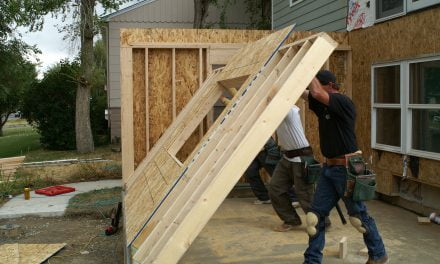Lenders are targeting underwater homeowners in a campaign to attract those interested in bypassing foreclosures and short sales and simply deeding over the title of their property to the lender. Bank of America is offering cash incentives that range from $3,000 to $15,000, as well as a promise to not pursue the homeowner for any deficiency for what is owed on the mortgage and what the lender obtains from the property sale.
Called a deed-in-lieu-of-foreclosure (deed-in-lieu), lenders are interested in these transactions primarily because they are cheaper and less time consuming than other foreclosure options. In contrast, the foreclosure process can take over a year, allowing the homeowner to stay in the property for free during that time. A deed-in-lieu is designed to allow the lender to sell the property much faster than any other foreclosure option. With 30-year fixed rate home mortgage rates below 5%, the lender will most likely be able to sell the property this summer or fall. Lenders find the deed-in-lieu appealing since most already have a huge backlog of underwater homes, called the shadow inventory, that still have not been put through the foreclosure process. With the deed-in-lieu, the whole process could take as little as 30 to 45 days.
Homeowners find this option attractive since it takes all the work out of their hands. They will not have to deal with real estate agents or haggle with buyers, nor will they have the enormous financial responsibility of an underwater property literally looming over their heads. The cash incentives do not hurt either.
Since Bank of America sent out over 10,000 deed-in-lieu solicitations to underwater homeowners, the lender’s volume of completed transactions is breaking company records.
first tuesday take: Bank of America is holding seminars state wide (it is believed) on their short sale and deed-in-lieu programs. We have no idea what they are presenting at this point since Bank of America will not release this information to the public. Only a select few agents and brokers were given special invitations to the seminars. Anyone attending who believes transparancy is better than a blackout, please let us know what you learned about their program so we can pass it on – as we are not invited, nor able to get the information from Bank of America itself. We never use the names of our sources.
However, the lender is advertising that a deed-in-lieu does not hit a homeowner’s credit score as hard as a bankruptcy or foreclosure, which is true. However, it does leave quite a mark. FICO treats both deeds-in-lieu and short sales as “not paid as agreed” accounts, which causes the same hit to the homeowner’s credit score under the FICO scoring model [For more information on FICO fallacy, see the June 2010 first tuesday article: The FICO score delusion]. .
While it may seem the deed-in-lieu option are finally giving homeowners an escape from their underwater homes, lenders are essentially offering homeowners 1%-10% of their property’s value (the $3,000-$15,000 cash incentives), a huge hit to their credit score and homelessness. While a strategic default may hurt the homeowner’s credit more so than a deed-in-lieu, a strategic default allows for the homeowner to continue residing rent-free in their property for a year or more during the foreclosure process. If the homeowner only saves the money he would be spending on rent or mortgage, then he can save far more money than the $3,000-$15,000 Bank of America is offering.
After spending a year or more living rent-free, one can use those savings to put a 20% downpayment on a replacement home. If the home is purchased two years after the foreclosure, Fannie Mae or the Federal Housing Administration (FHA) will insure a mortgage without concern for the nature of the prior default. It is our nation’s housing policy to keep homeowners as homeowners. [For more information regarding homeowner’s rights with their underwater homes, see the November 2009 first tuesday article California Homeowners: Exercising your right to default].
Re: Deeds-in-lieu gain favor with lenders as alternative to foreclosure in the Los Angeles Times













